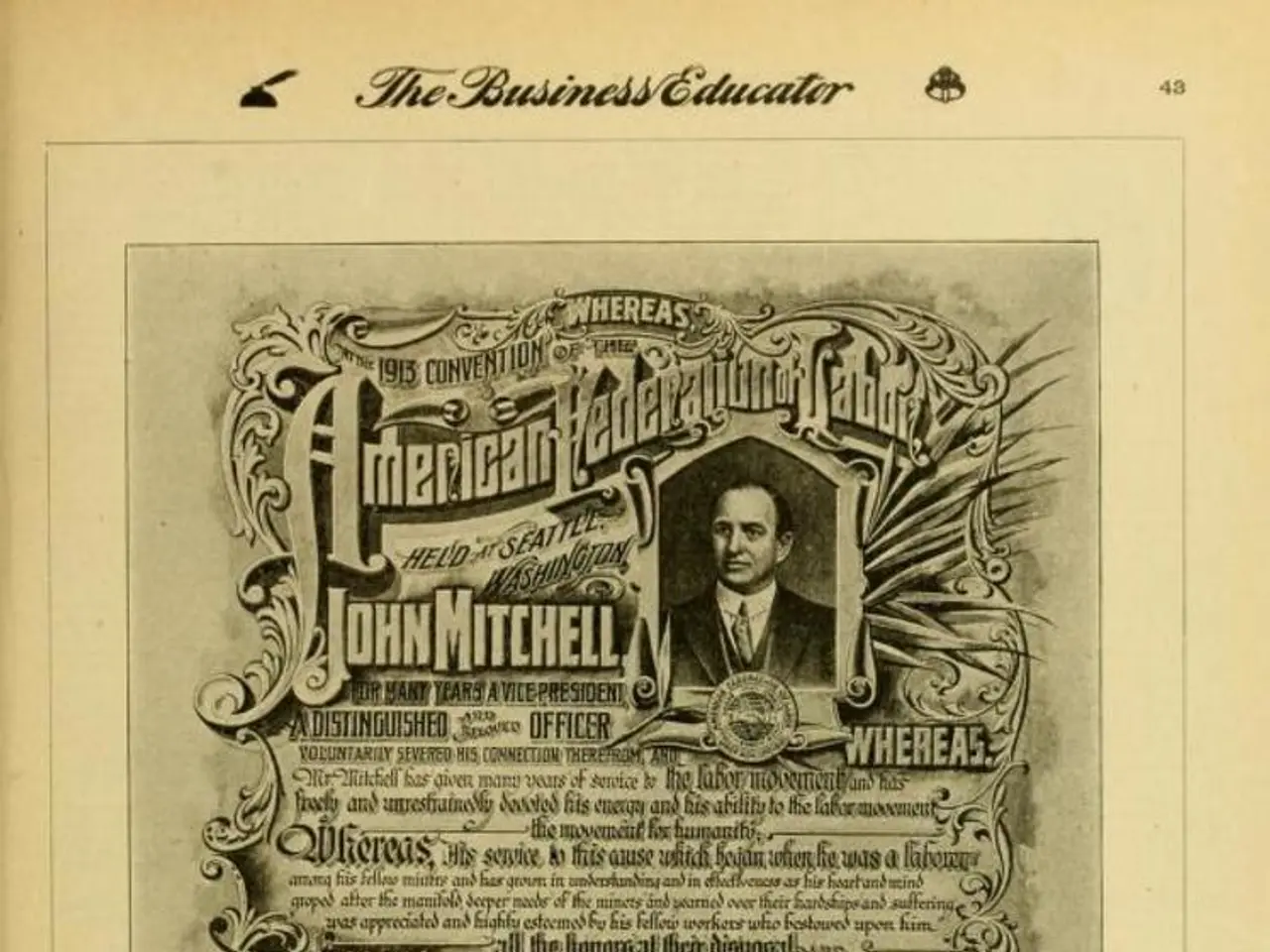Artificial Intelligence Transforms Historical Research Methods
In the world of academia, a significant shift is underway as Artificial Intelligence (AI) begins to play an increasingly prominent role in historical research. From museums and archives to academic institutions, AI is being hailed as a tool that can make collections more accessible, enhance public engagement, and revolutionise the way historians work with archives, manuscripts, and data analysis.
One of the key applications of AI in this field is the digitisation and transcription of handwritten manuscripts. AI-powered tools, such as large language models (LLMs) like GPT-4, are capable of transcribing texts much faster and more accurately than manual efforts, even deciphering messy or ancient handwriting. This accelerates access to primary source materials that were previously difficult and time-consuming to analyse [1][3].
AI also supports translating ancient or long-lost languages, enabling historians to unlock texts and inscriptions that were inaccessible without specialized linguistic skills [1]. Furthermore, AI enables pattern recognition and text mining, allowing historians to detect patterns, themes, and trends across large datasets or corpora of historical texts much faster than traditional methods, facilitating new insights and discoveries [1].
AI-powered tools are also being used for image recognition and analysis. Amazon Rekognition and Google Vision AI are examples of such tools, which are used for analysing historical images, objects, or even ecological data embedded in historical documents. This enhances research on material culture and historical environments [3].
In addition, AI is being employed to enhance public engagement. AI-generated visualizations, interactive digital experiences, and multimedia outputs are helping historians disseminate complex narratives in more accessible and engaging ways for wider audiences [2]. Some museums now use LLMs to power interactive installations, allowing visitors to converse with AI-generated personas modeled on historical figures.
However, the increasing use of AI in history is not without its ethical concerns. Historians must be aware of algorithmic bias and historical accuracy, as there is caution about overreliance on AI algorithms that may embed biases from their training data, potentially distorting historical interpretation [1][4]. To address this, historians emphasise the importance of maintaining human critical judgment and cross-verification to preserve interpretive integrity.
Transparency and misinformation are other concerns, given risks around AI-generated content that may be inaccurate or misleading. Rigorous verification protocols and transparency about AI’s role in research are being promoted [4]. Privacy and data security are also crucial considerations, especially when handling sensitive archival materials involving personal or cultural information [4].
Historians are also aware of AI’s tendency to reflect dominant cultural perspectives or linguistic biases, so efforts are underway to ensure more inclusive datasets and culturally sensitive applications of AI [4]. Ethical use policies are being developed to address issues like AI’s use of copyrighted materials and to prevent harmful applications such as deepfake content in historical narratives [4].
In summary, AI is substantially improving historical research efficiency, scale, and public interaction while raising critical ethical considerations. Historians are actively addressing these concerns through transparent methods, critical oversight, inclusive practices, and evolving ethical guidelines to harness AI’s benefits responsibly [1][4]. The increasing collaboration between the humanities and technology represents a significant opportunity for both fields to grow and evolve together.
References: [1] The Art of Historical Detection: How AI is Revolutionising History Research, TechCrunch, 2021. [2] AI in the Humanities: Opportunities, Challenges, and the Future of Scholarship, The MIT Press, 2020. [3] The Digital Humanities: A Guide to Gaining Proficiency in Scholarship, Pedagogy, and Tools, University of Michigan Press, 2016. [4] Ethical Guidelines for the Use of AI in Historical Research, The American Historical Association, 2021.
- Machine learning, a component of artificial intelligence, is revolutionizing the field of history by automating the transcription of handwritten manuscripts, making primary source materials more accessible [1][3].
- In education and self-development, artificial intelligence aids historians by enabling pattern recognition and text mining, which facilitates new insights and discoveries from large datasets or historical texts [1].
- Artificial intelligence is also being utilized in the technology of image recognition and analysis, enhancing research on material culture, historical environments, and even ecological data [3]. In addition, AI is used to create interactive digital experiences, improving public engagement with historical narratives.




